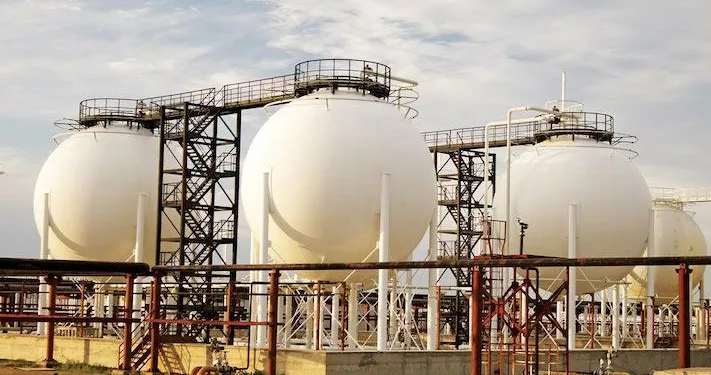The federal government of Nigeria has embarked on an ambitious initiative aimed at slashing fuel costs by up to 70 per cent through the adoption of Compressed Natural Gas (CNG) as an alternative to traditional petroleum-based fuels.
Speaking during the flag off ceremony of Nigerian Army fleet auto switch and training held in Abuja, the minister of Transportation, Sen Said Alkali stated that the move comes in the wake of the withdrawal of petroleum subsidies, prompting officials to seek viable alternatives to alleviate the financial burden on citizens.
Alkali stated that the government has initiated training programs and commenced the conversion of vehicles in the Army fleet to utilise CNG.
He said, “This shift towards cleaner and more cost-effective energy sources has garnered significant interest from investors and petroleum dealers alike, with many already investing in the necessary infrastructure to support the transition.
Speaking on the initiative, Alkali emphasised President Muhammadu Buhari’s commitment to improving the welfare of the Nigerian people.
According to him, the cost savings will be substantial, with the price of a trip from Abuja to Kaduna expected to plummet from N80,000 when using petrol to just N15,000 with CNG.
“The National Institute of Transport Technology (NITT) has been instrumental in driving the initiative forward, collaborating with various stakeholders, including both government entities and private sector partners. This collaborative approach underscores the widespread support for transitioning towards more sustainable energy solutions.
“With CNG infrastructure already in place in key areas such as Abuja and Kaduna, the stage is set for a significant reduction in fuel costs once the initiative reaches full economic viability. As the government continues to roll out the conversion program and promote the benefits of CNG adoption, Nigerians are hopeful that this shift will not only alleviate financial strain but also contribute to environmental sustainability in the long run,” he said.
The minister expressed optimism about the positive impact on the operational efficiency of the Nigerian Army across its various formations and commands. Adding that the initiative, championed by President Bola Ahmed Tinubu, is praised for its potential to reduce transportation costs for Nigerians while curbing carbon emissions.
He emphasised that the initiative aims to generate employment opportunities, facilitate technology transfer, bolster auto manufacturing, and improve critical gas distribution infrastructure. It seeks to harness Nigeria’s abundant natural gas resources, currently underutilised and often flared.
Alkali maintained that the implementation of the CNG Initiative is anticipated to spur economic growth, strengthen domestic automotive manufacturing capabilities, and contribute to a cleaner environment. It aligns with Nigeria’s commitment to its National Determined Contributions and promises to broaden the government’s revenue base through investments in the gas market, “ he said.
In the same vein, the Minister of Steel Development, Prince Shuaibu Audu, highlighted President Bola Ahmed Tinubu’s pioneering role in the CNG initiative as part of the presidential review and programmes aimed at reducing the pressure and burden of fuel subsidy removal.
He said that the CNG initiative is expected to drastically reduce the cost of transportation nationwide.
“I’ve committed to this project through the Ministry of Steel Development because the Ajaokuta steel complex offers an excellent facility to produce CNG power, enabling us to manufacture CNG kits essential for the Nigerian Army. All necessary facilities for natural gas vehicles are available within the Ajaokuta space. We have a gas pipeline running from Ajaokuta to Wori, the Metallurgical Training Institute to train engineers for kit assembly, and engineering and fabrication workshops for vehicle production and conversion.
“Additionally, there’s a housing estate for ten thousand people to accommodate those involved in the program. Conversations with the Ministry of Defence are underway to establish a military industrial complex within the Ajaokuta Steel Complex. It’s crucial for us to embrace this CNG initiative, and as Minister of Steel Development, I pledge my support to ensure prompt delivery of Mr. President’s initiative on the CNG program,” he said.
The Chief of Army Staff, Lieutenant General Taoreed Lagbaja, emphasised the significance of the Army’s involvement in this morning’s initiative, highlighting the necessity given the extensive fleet of vehicles utilised in securing the nation daily.
Lagbaja who was represented by Chief of Logistics Nigerian Army, Major Gen Erema Akerejola, affirmed the Army’s readiness to support the initiative, citing potential cost savings and energy efficiency benefits in alignment with environmental concerns.
“Consequently, the Chief of Army Staff has approved the conversion of 30 vehicles as a pilot test for the initiative, demonstrating the Nigerian Army’s full cooperation with the presidential initiative.”
The DG/CEO of the Institute of Transport Technology (NITT) in Zaria, Dr Bayaro Farah emphasised the importance of the Nigerian Army’s gradual switch to CNG vehicles, stating it will significantly enhance national security and encourage other government agencies to follow suit.
He assured continued commitment from NITT towards the Nigerian auto gas project, highlighting successful vehicle conversions in Abuja and at the institute’s headquarters in Zaria, with support from PCNGI.
The project director of PCNGI, Engr. Michael Olugbemi, stated that the Nigerian Army has showcased the importance of embracing cutting-edge technology for harnessing Nigeria’s resources towards national development.
He said that this initiative not only cuts operational costs but also fosters a greener environment for all.



